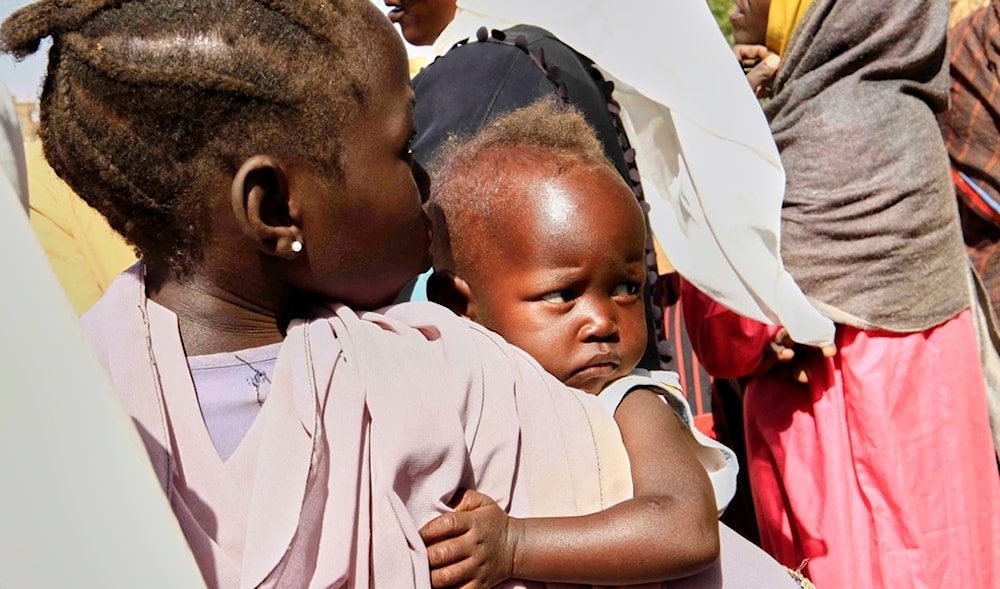RSF restrict aid as famine worsens, humanitarian aid workers warn
Amid consistent warnings of the RSF looting aid, aid workers now warn that the paramilitary is squeezing aid and their operations, further worsening the humanitarian crisis in Sudan.
-

A displaced Sudanese woman holds her child as they take shelter in a school after being evacuated by the Sudanese army from areas once controlled by the RSF in Omdurman, Sudan, March 23, 2025. (AP)
Sudan’s paramilitary Rapid Support Forces (RSF) have imposed new restrictions on aid deliveries in territories under its control, exacerbating an already dire humanitarian crisis, aid workers say, as cited by Reuters.
The constraints come as the RSF attempts to establish a parallel government in western Sudan, despite losing ground to the army in the capital, Khartoum—a development that threatens to deepen divisions in the war-torn country.
The restrictions also jeopardize the survival of hundreds of thousands in Darfur, many of whom are already displaced by previous conflicts.
Relief workers have previously accused RSF fighters of looting aid during more than two years of ongoing war in Sudan. They also accuse the army of blocking or hindering access to RSF-held areas, exacerbating hunger and disease.
A dozen aid workers, speaking to Reuters, said that since late last year, the RSF has begun demanding higher fees and oversight of operational processes, such as hiring local staff and security, matching practices used by army-aligned authorities, and further tightening access. The moves have not been previously reported, but aid groups have been attempting to push back against them.
Moreover, according to aid workers, the RSF’s push for tighter control serves as a means to gain international legitimacy and as a revenue source amid military setbacks.
Aid crisis peaks as fighting continues
In January, the Norwegian Refugee Council (NRC) warned that hundreds of thousands of Sudanese refugees in Chad are deprived of essential aid after a UN-led response plan secured only 30% of its required funding for 2024.
The $630 million refugee response plan for Chad, developed by the UN in collaboration with international NGOs, represents the estimated amount required by the UN refugee agency to address basic needs.
According to the NRC, nearly one million people have fled into Chad, including more than 720,000 Sudanese refugees and over 220,000 returning Chadians.
Meanwhile, tens of thousands have been forced to leave their homes in North Darfur as clashes between Sudan's rival forces escalated late last week. According to the International Organization for Migration (IOM), approximately 15,000 families were displaced from the town of Al-Malha over a two-day period, from Thursday to Friday.
Since the outbreak of war in April 2023, hostilities between the RSF and the army have left tens of thousands dead, uprooted more than 12 million people, and triggered what the UN describes as the world's most severe hunger and displacement emergency.
In North Darfur alone, the UN estimates nearly 1.7 million people are currently displaced, while around two million face critical food shortages.

 3 Min Read
3 Min Read








